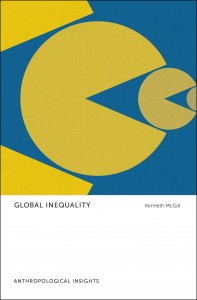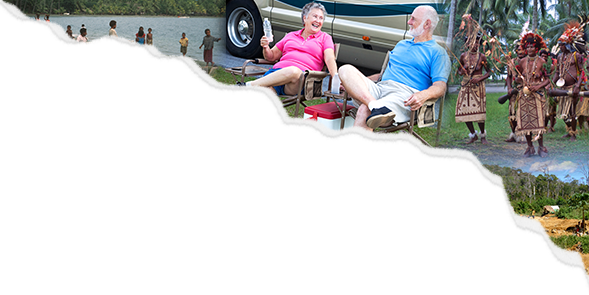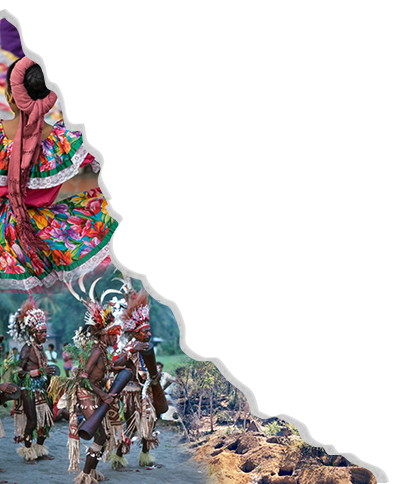To mark the publication of Global Inequality, the first book in UTP’s new Anthropological Insights series, author Kenneth McGill explains the process of writing a book about inequality from a global perspective, and why the lessons in the book are necessary for today’s students.
 I have been one of those reluctant consumers of the scholarship on “globalization.” It has long seemed to me that even the best examples of this literature struggle to avoid the strange assumption of a world which begins divided into discrete units and is eventually unified through a single and monolithic process. Notwithstanding the deployment of certain terminological monstrosities (cf. “the glocal”), it has often seemed to me that there is little that scholars of globalization can do to counter this narrative.
I have been one of those reluctant consumers of the scholarship on “globalization.” It has long seemed to me that even the best examples of this literature struggle to avoid the strange assumption of a world which begins divided into discrete units and is eventually unified through a single and monolithic process. Notwithstanding the deployment of certain terminological monstrosities (cf. “the glocal”), it has often seemed to me that there is little that scholars of globalization can do to counter this narrative.
And yet, when I sat down to write a book about the anthropology of inequality, I found myself drawn once and again towards the concept of globalization. Sit down to write about how inequality functions in any particular locale or among any particular group of people, and you will quickly find yourself making connections to other locales and other groups of people. Inequality exists among webs of relations, and exploring this web all but requires you to expand your focus as wide as possible. In spite of myself, the endgame for an anthropological approach to inequality seemed clear: either address the issue of inequality from a global perspective, or don’t address it at all. The concepts of globalization and inequality, while individually incomplete, have seemed to me during the course of writing this book to have a strange affinity for one another.
Although a loose one, I think this lesson is important for the particular moment in which we live. Inequality has landed squarely on the front page, and demands to be spoken about with an altogether new urgency. And yet the inequality we talk about is often a curiously limited one, tending in particular to reify national borders. We ask ourselves about the inequalities between the bottom 99% of income-earning Americans and the top 1%, but we rarely consider how nearly all Americans are in the top 10% of global income-earners. A refugee crisis in Europe is framed in terms of the charity and beneficence which Europeans owe to non-Europeans, but it is altogether rare to hear consideration of the larger structures of global inequality which draw refugees in Europe’s direction to begin with.
The book I have written can be thought of as an attempt to place inequality in a necessary, if imperfect, global perspective. I emphasize not only the difficulties which anthropologists have had in thinking through global relationships, but also the many different forms that inequality might take in various contexts large and small. A key phrase from the sociologist Sylvia Walby might be inserted here, to the effect that there is no “primary form of inequality.” In each case—whether inequality takes the form of gender or racial discrimination, whether it involves access to the law, whether it involves measurable income, whether it be considered within borders or across them—my consistent concern is to consider how different forms of inequality are intersectional rather than hierarchical.
This latter insight is particularly important as I examine the forms of economic inequality which surround capitalism, which has both been crucial for the process of global integration and has offered a very specific logic of economic exploitation and inequality. Economic inequality matters now more than perhaps ever before, and students of anthropology should be aware of the precise ways in which capitalism encourages unequal division. From a properly anthropological perspective, however, what is frequently most interesting in any particular case is the way in which capitalist exploitation and accumulation intersect with other forms of inequality. Sometimes I examine these intersections on the local level—for example, by asking how local forms of economic inequality shape local responses to the rule of law. Sometimes I attempt to grapple with these intersections in a broader global context—by attempting to explain, for example, how certain genuinely global forms of patriarchy and racism have begun to emerge.
For me, what remains uniquely anthropological in all this is an insistent focus not just on the fact of inequality, but on the ways in which inequality is realized. Several years ago, the World Bank economist Branko Milanovic made the observation that there have been “two winners” of economic globalization since 1990—the global elite and the emerging working class in China. During this period, the world’s wealthiest people have seen their already substantial incomes grow by up to 60%. However, the middle of the global income distribution has matched this rate of growth over the same period, an economic trend which can be attributed overwhelmingly to the movement of poor peasants from rural villages to China’s new industrial cities. Although still extremely poor, this new factory proletariat has substantially increased its economic earnings. What ethnography tells us is how this historical transformation has involved new categories of social evaluation (such as the use of suzhi, or “quality,” in descriptions of migrant women), new forms of protest (such as the wildcat strikes in China’s “sunbelt”), and new social structures (such as those achieved through the continuing application of residency restrictions to urban labor migrants).
Ultimately, of course, there are no silver bullets for the anthropologist of inequality. There is no one theory of what inequality is and why it persists, and we must be willing to move back and forth between insights generated by economists, ethnographers, and everyone in between. If nothing else, I hope that my book will help students to think about the world’s many different forms of inequality from an integrated perspective. It is consideration of this kind that the present moment demands.
Kenneth McGill is Associate Professor of Anthropology at Southern Connecticut State University.



